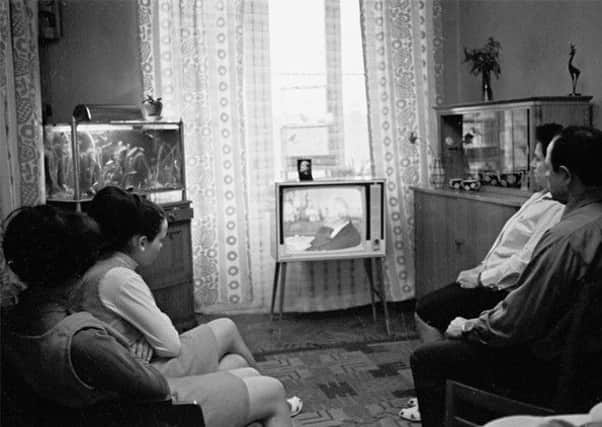Jane Bradley: Turned off by too much TV viewing


So went the catchy theme tune of the eponymous 1980s children’s programme.
As a very literal child, this always perplexed me slightly. Surely, I thought, the people who made the TV programme should want you to watch it. So why tell you to go and do something else? Bad business sense, I thought, shaking my head, ribboned bunches bouncing sagely.
Advertisement
Hide AdAdvertisement
Hide AdOf course, the whole point was that it showcased children getting off their backsides during the school holidays and doing “less boring” things suggested by viewers. It being the 80s, these things tended to be restricted to wholesome activities such as crafts, or family days out.
But, it turns out, the message didn’t work. Very few of us must ever now do something less boring instead, according to new TV viewing figures, which revealed that last year the average person watched a massive three hours, 55 minutes, and 30 seconds every day.
Apparently this is actually slightly lower than 12 months earlier, according to figures compiled by the Broadcasters’ Audience Research Board: a whole nine minutes per day less than 2012, when the popularity of the Olympics boosted viewing time.
The figures are frightening. To watch this much TV, we must literally switch on when we get in from work and do little else until it is time to go to sleep. Maybe we take a short break to make dinner, but probably not to eat it. How can we? There’s so much TV to watch and so little time.
Not forgetting, of course, that these are average figures. For every one of those smug people who claims they don’t watch any TV at all, there must be someone who watches almost eight hours a day.
That is equivalent to a full time job. Very enterprising.
As for those who claim they don’t watch any, I don’t believe them, even if they don’t show up on the stats.
Most of those who like to make out that their lives are more exciting than mere telly are the same folk who have a subscription to Netflix and LoveFilm and spend most of their time perusing disjointed episodes of dodgily downloaded HBO series on their iPads. But they don’t watch any TV. Oh,no?
However, they are not counted in the figures – unless their surreptitious TV watching extends to online catch-up services such as BBC iPlayer or 4 On Demand.
Advertisement
Hide AdAdvertisement
Hide AdThis skewed data recording makes the amount of time needed to fit in this average of nearly four hours a day even more astounding.
Think about it: with four extra hours freed up in the day, our productivity could be quite amazing.
In a year, it would be quite easy to learn to speak a new language fluently. Work up to Grade Five piano – from scratch. Spend enough time in the sky to get a private pilot’s licence many times over. Find yourself well on the way to earning a black belt in karate.
With just a few more hours squeezed from weekend fun, ditching the TV would generate enough time to study for an Open University degree on the equivalent of a full time basis – earning a Bachelor’s in just three years of study.
Closer to home, that junk cupboard could be cleared out, repainted and turned into a useable study within just a couple of weeks of switching off.
In just one or two nights, the freezer could be filled with batches of healthy, home-cooked meals for legitimately busy nights when there is no time to cook.
That’s not to say there’s no place for TV. Of course there is – and in today’s technological world of Sky Plus and on-demand viewing, it’s easy to tailor our TV habits to what we actually want to watch, rather than whatever dross happens to be on when we’re tired and want to put our feet up for an hour or so.
British broadcasters make some of the most technically brilliant and entertaining programmes in the world and it would be a shame not to watch them.
But maybe not every night.